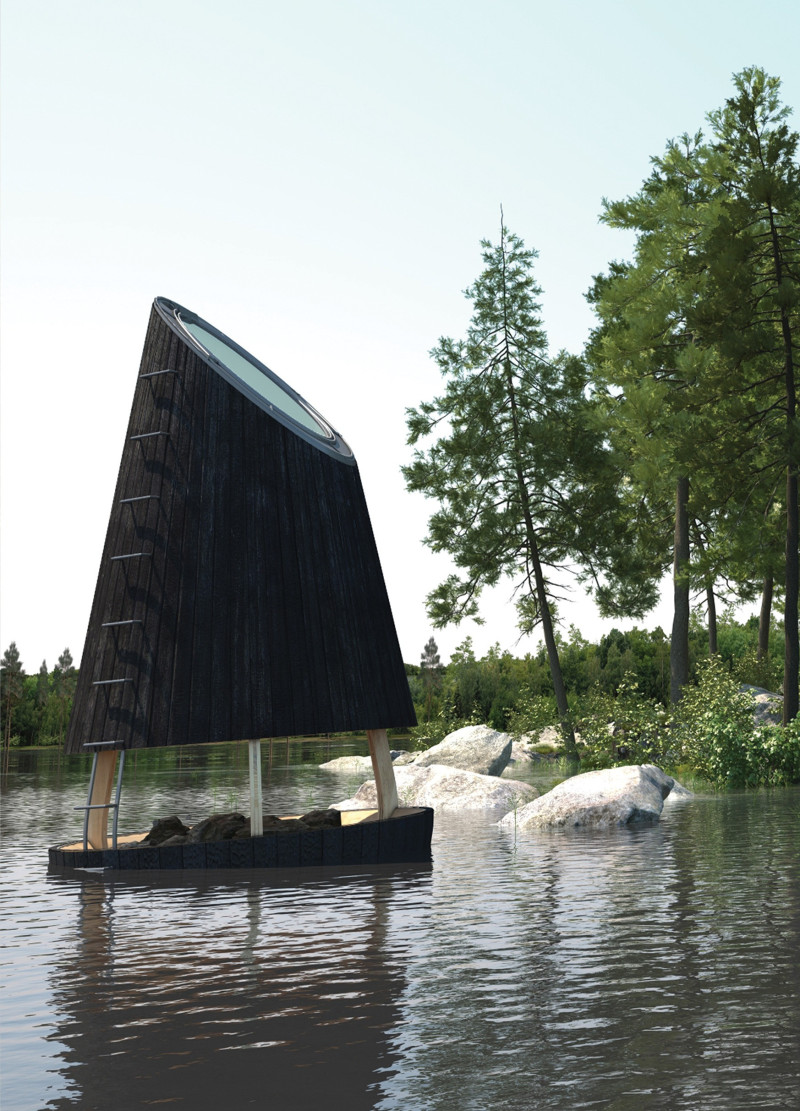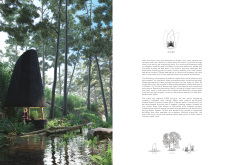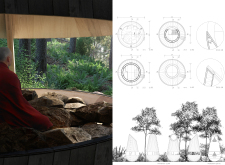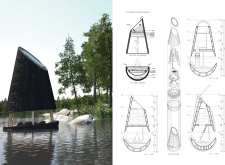5 key facts about this project
A series of modular cabins are designed to foster meditation and create a strong connection with nature. Located in varied environments such as forests, lakes, and bogs, these cabins act as peaceful retreats. The design focuses on promoting relaxation and mindfulness, meeting the growing need for balance in today’s fast-paced world.
Design and Functionality
Each cabin includes two decks, allowing for both indoor and outdoor meditation experiences. Occupants can engage directly with their surroundings, whether they choose to sit inside or step outside. The cabins also have a watertight base, providing enough buoyancy to float on water. This feature enhances the relationship between the structures and their natural settings, allowing the cabins to sway gently with the elements.
Sustainability Measures
The cabins operate entirely off-grid, reflecting a commitment to environmental sustainability. Rainwater harvesting systems ensure a constant supply of clean water through natural filters and passive purification methods. For heating, each cabin uses an eco-rocket stove, which efficiently burns biomass with minimal harmful emissions. This approach promotes responsible living while reducing environmental impact.
User Experience and Amenities
Access to the cabins is intended to feel like a special ritual. This transition encourages users to leave behind their daily distractions and prepare for meditation. Amenities such as toilets and showers are placed in separate buildings, allowing for privacy and comfort while still connecting residents to the surrounding nature. The cabins measure 14.6 square meters, and each has dedicated areas for hygiene, maximizing their functionality.
Water Purification System
An important aspect of the design is the water purification system. It uses active carbon filtering, stones, and sand to ensure safe drinking water. This system highlights a proactive approach to water management and occupant health, making the cabins practical as well as peaceful.
The cabins, with their quiet presence and thoughtful design, provide a welcoming space for individuals seeking reflection and renewal in a natural environment.





















































